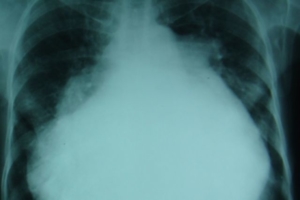Congestive Heart Failure
Heart disease and heart failure continues to be a large burden in the community as our patient population continues to age. Patients suffer with symptoms and debilitation with both direct and indirect costs to society. Heart failure patients have a high risk of hospital admission and readmission within 30 days of discharge. Studies have shown that multidisciplinary intervention at multiple levels have been shown to improve symptoms, decrease hospitalizations, and improve quality of life. Metropolitan Heart and Vascular Institute (MHVI) has a comprehensive program to care for patients with congestive heart failure (CHF).
The CHF Program is designed to care for patients in an outpatient/ clinic setting, working closely with the hospital, providing care and ongoing education to our patients in the hospital as well. The Heart Failure Program at MHVI offers:
- Daily open/same day appointments for patients that need to be seen on an urgent or semi-urgent basis
- Close telephone follow-up and monitoring of heart failure signs and symptoms
- One-on-one education from a CHF nurse clinician in clinic.
- Weekly calls from the CHF nurse clinician for the first 30 days after hospital discharge to help monitor heart failure symptoms and provide early intervention for any problems that may occur
- Direct phone access to a CHF nurse for questions or concerns
- Consultations with physicians specializing in treating CHF
- Referrals to CHF outpatient services, including the Cardiac Rehabilitation program, CHF support group, Home Health Care, and Advanced Care Planning sessions
- A pulmonary hypertension session, including education and close follow-up of symptoms by a specialized nurse trained in pulmonary hypertension
Heart failure specialists at MHVI work closely with other cardiovascular specialists to ensure our patients if needed will get state of the art device therapy.
We refer to electrophysiologists for pacemakers and defibrillators that can restore or improve heart pump function (cardiac resynchronization therapy).
We refer to interventional cardiologists for
- Right heart catheterizations to guide medical therapy
- Coronary angioplasties and stents that can restore blood flow to the heart muscle
- Percutaneous valve replacement or repair procedures that improve or replace heart valves that are contributing to heart failure;
- CardioMEMsTM devices to monitor for fluid build-up in our patients who have frequent heart failure hospital admissions.
We also partner with academic and quaternary referral centers who offer state-of-the art programs in heart transplantation and left ventricular assist devices to send our patients with advanced disease who are suitable candidates for these therapies.


